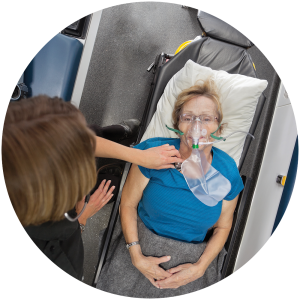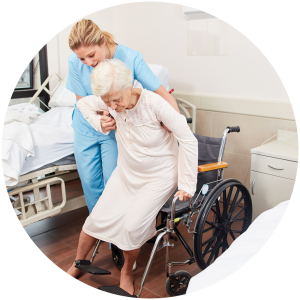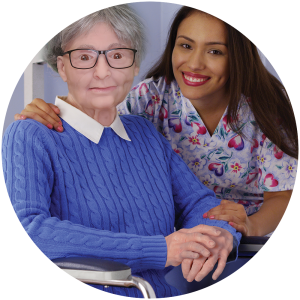Author: Melissa Dummer, National Distribution Sales Manager, Nasco Healthcare, previously a Nursing Home Administrator.
I think we can all agree that 2020 has highlighted the importance of being READY for medical emergencies in long-term elderly care facilities. Covid-19’s impact on the senior population shows that geriatric medical simulation training is more important than ever.
It’s expected that 25% of the world’s population will be over the age of 60 by the year 2050. Long-term residential statistics from the centers for Medicare & Medicade Services report that in 2014:
- 7.8% were 95 or older
- 33.8% were 85 to 94
- 26.4% were 75 to 84
- 16.5% were 65 to 74
Much like pilots, healthcare professionals benefit from realistic simulation. Rather than a “generic manikin”, a realistic trainer that simulates unique geriatric patient needs allows caregivers to truly be READY for the challenges they’ll face in the real world. Our elders deserve care providers who are experienced, prepared, and adequately trained.
Full body geriatric manikins, like Nasco Healthcare’s TERi™, meet this demand by providing enhanced realism. As people age, health issues become more complex. Mobility and personal care become more difficult, and caregivers need proper training to manage these issues. That’s why we designed TERi™ to specifically address some of the most common challenges seen in long-term care:
Falling is the primary cause of injury among the elderly. Often, they need assistance just to stand.
With its weighted joints, TERi™ addresses this need by mimicking a fragile patient. The caregiver can learn how to properly position an elderly patient in order to prevent a fall, without compromising patient safety.
Skin tears are unfortunate, but extremely common injuries among the elderly as their skin becomes weaker and loses elasticity. With its soft, realistic “skin” feel, TERi™ is able to help caregivers better understand both the causes and the treatments needed to care for these wounds.
For prehospital emergencies, TERi™ now can mimic the full experience – from intubations for ventilator training and auscultation with heart and lung sounds to CPR resuscitations with carotid pulse. Even patient vital signs and monitored signals can be replicated.
TERi™ also addresses crucial daily living assistance. Caregivers can correctly learn the essentials of bathing, hair care, denture care, hearing aid placement, eye care and ostomy/catheter care.
As people live longer with chronic health conditions, TERi™ is a an innovative solution to practice scenarios to help ensure elderly patients get the careful attention they require – from prehospital emergencies to end of life care.
Nasco Healthcare is always READY to help prepare healthcare heroes to deliver optimal patient outcomes.




